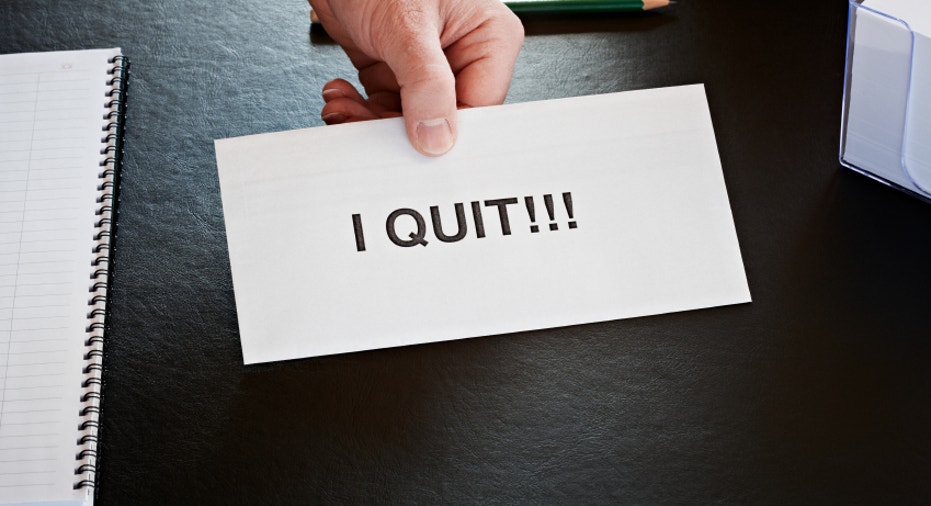4 Signs It's Time to Quit Your Job

Keeping work life separate from your personal life can be difficult. What’s going on at the office inevitably seeps into our private life—for better or worse.
When life at the office gets bad it can impact everything in your life, whether you realize it or not. And knowing when it’s time to walk away from a job can be tough to do. After all, the labor market isn’t exactly thriving at the moment. But there are signs that it’s time to plan you're your exit strategy and move on.
Sign No.1: You Don’t Feel Well. An unhappy professional existence can affect your physical health. If you often don’t physically feel well, are unhappy at work and are regularly stressed out, it’s time to assess your work environment.
Ask yourself how well can you continue to do your job given how you poorly you feel. The last thing you want is for your career to stall. It’s hard to stay motivated and productive when you are constantly not feeling well. However, before blaming your health conditions on your job, it’s wise to schedule a checkup with your doctor to rule out any unrelated health issues.
Sign No.2: Your personal life is in disarray. If your personal relationships are suffering or non-existent because you make little or no time for yourself away from the office, it’s time to evaluate your job. You may love what you do, but if it requires you to be plugged into the office 24/7, perhaps that pace has taken its toll.
One never knows where life will lead; and in this day and age, no job is secure. You could be gainfully employed one day and handed a pink slip and shown the door the next. If your whole existence revolves around your job, a lay off can leave you struggling with the meaning of life. Work-life balance is crucial, and if it seems impossible to do in your current position, it might be time to look elsewhere.
Sign No.3: You have become moody, impatient, depressed, angry or negative. If you are generally a positive, happy person and have recently noticed a change in your personality or attitude, it’s possible that your job is to blame for the behavior shift.
According to recent data, Americans spend, on average, more than half of their waking hours at work, so it’s reasonable to think that a sudden change in your personality can be due to being unhappy or unfulfilled by your job. But before you do anything hasty, make sure you’re certain that the problem is your job and not something else. If you’re unsure, consider asking a friend or contacting a professional for an unbiased assessment.
Sign No.4: Your job no longer aligns with your goals. If you don’t have goals for both your personal and professional lives, stop right now and create them. Once you outline your life goals, assess whether or not your current job helps you achieve those goals. If not, it’s time review your career path. Perhaps you can seek out a new position within your current organization that better aligns with your long-term prospects. Consider searching your firm’s jobs board or having a conversation with your boss or human resources manager about other positions.
When you talk to your boss, make sure you convey that you want to contribute more to the organization. Doing so will give you a better chance of your employer wanting to work with you to find a better position. If you feel that you and your current firm have outgrown each other, start networking both in-person and online to help secure a new professional opportunity.
Lindsay Broder, The Occupreneur™ Coach (on Twitter @occupreneur), is a certified professional coach based in New York. A Wall Street veteran, she specializes in Occupreneur™ coaching, strategy and crisis management services for executives, business leaders and organizations who strive to improve their businesses or careers.



















